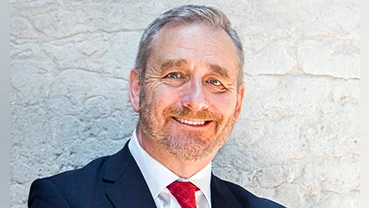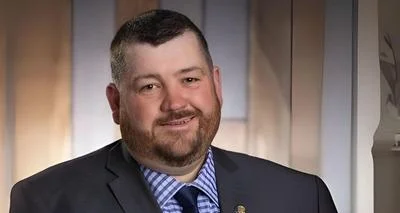U.S. Senator Sherrod Brown (D-OH) | U.S. Senator Sherrod Brown (D-OH) Official Website (https://www.brown.senate.gov)
U.S. Senator Sherrod Brown (D-OH) | U.S. Senator Sherrod Brown (D-OH) Official Website (https://www.brown.senate.gov)
WASHINGTON, D.C. – U.S. Senator Sherrod Brown (D-OH) joined the Cincinnati Chamber’s Washington D.C. fly-in, and discussed key wins for Southwest Ohio – including infrastructure improvements delivered in the Bipartisan Infrastructure Law, regional investments in economic development, and priorities Brown secured in Congressional Directed Spending. Brown also discussed his bipartisan Railway Safety Act that he sponsored with U.S. Senator J.D. Vance (R-OH) and the need to improve rail safety in Ohio and across the country, following the recent Norfolk Southern train derailment in East Palestine.
“Cincinnati is a model for creating a livable city, keeping residents and attracting new ones You show cities what we can achieve for the region when everyone works together – local government, local businesses, community leaders, unions, higher education, members of Congress,” said Brown. “From rebuilding the Brent Spence Bridge and the Western Hills Viaduct to record investment so SORTA can expand transit service, we are investing in Cincinnati.”
In the Bipartisan Infrastructure Law, Brown secured funding for a number of Cincinnati priorities. This included:
- $1.635 billion to repair the Brent Spence Bridge
- $127 million to replace the 90-year-old Western Hills Viaduct
- $157 million to support transit improvements over the next five years
Brown’s remarks, as prepared for delivery, are below:
Cincinnati is a model for creating a livable city, keeping residents and attracting new ones.
You show cities what we can achieve for the region when everyone works together – local government, local businesses, community leaders, unions, higher education, members of Congress.
Look what we got done over the past year:
We brought back Congressionally Directed Spending or CDS two years ago – it’s kind of like the old earmark process, but with a lot more ethics safeguards.
Not all offices participated, but we did – I’m never going to pass up an opportunity to get more resources to Ohio communities.
You know, I’ll work with anyone to support Ohio communities. This year, we were able to get funding that’s going to make a real difference for this region:
$1.5 million to improve the Linn Street corridor
$900,000 for the Smale Riverfront Park project
Funding for Good Samaritan Hospital, the Center for Addiction Treatment, and the Association for the Blind and Visually Impaired
And we’re investing $4 million to move the gun range in Lincoln heights and Woodlawn to a better location. That’s an idea that came from all of you – we heard about this from local leaders, people in the community talked about what a problem this was. So, we went to work and got it done – and is going to make a real difference.
This is just the beginning.
We are starting to see projects from the bipartisan Infrastructure Bill get off the ground – projects that are putting Americans to work at jobs that can’t be shipped overseas.
Cincinnati has been at the forefront of showing what can be done with smart, targeted infrastructure investments.
It’s why the Vice President came to town. It’s why the President came to town. And it’s why Mitch McConnell and I stood together with the Cincy skyline as our backdrop.
One of my biggest priorities was making sure our Bridge Investment Act was in that bill. It’s allowing us to finally replace the Brent Spence Bridge.
I don’t have to tell anyone in this room how big a deal this is, and how long we’ve worked on it. This is more than a decade in the making.
And there’s far more to come. Across the country, we’re repairing roads, rebuilding bridges, replacing lead pipes, driving new pollution-free buses.
U-S-D-O-T awarded $127 million to replace the nearly 90-year-old Western Hills Viaduct. You all know how badly we need that.
And over the next 5 years, the Cincinnati region will receive more than $157 million in transit formula funding from the infrastructure law.
I’ve seen some of the projects you want to do here in Cincinnati. I’ve talked with Darryl about all the big plans that SORTA has for this funding.
It’s an opportunity to make Cincinnati a hub.
This next year will be critical in that effort.
Keep coming to us with projects – we want to make sure Ohio gets funding it needs.
This infrastructure law is a part of our larger work to put in place a new pro-American, pro-worker industrial policy.
Corporations searched the globe for cheap labor. First, they went to anti-union states in the South.
Then, corporations lobbied for tax breaks and bad trade deals to help move jobs overseas – always in search of lower wages.
And Wall Street rewarded them for it, over and over and over.
That ends now.
The infrastructure bill, the Inflation Reduction Act, the CHIPS bill – all these important, often bipartisan, victories are about producing more in America, in Ohio. They’re about shortening our supply chains, creating jobs at home, and positioning our state to lead in the industries we know are going to drive the economy over the coming decades.
Look at semiconductors – America invented the semiconductor. We started this industry. But now 90 percent of them are made overseas.
We have to change that. And we are.
You all know what’s happening with Intel.
That deal wouldn’t have happened without our work on CHIPS.
It’s not just about this one facility– it’s the way they attract other suppliers, they incubate talent, that in turn attracts other businesses.
We are laying down a new marker:
The technology of the future – from semiconductors to batteries to electric vehicles – will be developed in Ohio, and made in Ohio.
And as you all know, I’ll do anything I can to support these efforts to grow jobs in Ohio.
Finally, I want to talk about the bipartisan work we’re doing to improve rail safety, to make sure that no more communities have to deal with what Ohioans in East Palestine are dealing with.
You know how these big rail companies operate: It’s the Wall Street business model – they lay off workers and skimp on safety – all to cut costs and juice their stock prices.
They cut more than 30% of their workers in less than 10 years.
And when something inevitably goes wrong, they expect all of you to clean up their mess.
It shouldn’t take a train derailment for elected officials to put partisanship aside and work together for the people we serve – not corporations like Norfolk Southern.
It’s why I introduced bipartisan legislation with Ohio’s new senator, Senator Vance, to finally take on the rail lobbyists and make trains safer as they go through Ohio communities.
Former President Trump endorsed the bill. President Biden has already said he’d sign it. Republicans and Democrats across the ideological spectrum are backing this bill – it passed out of the Commerce Committee with bipartisan support. I hope we’ll be able to get it on the floor soon.
One last thing I’ll mention is the Kroger-Albertsons merger.
This merger has the potential to be great for the region and great for workers.
I’ve been in touch with Kroger CEO Rodney McMullen. He knows that companies like Kroger need to work collaboratively with their unions if they want to succeed in the future.
This would make them one of the largest union employers in the country, if they do this right.
I’ll stop there, so we can do questions.
Original source can be found here.






 Alerts Sign-up
Alerts Sign-up